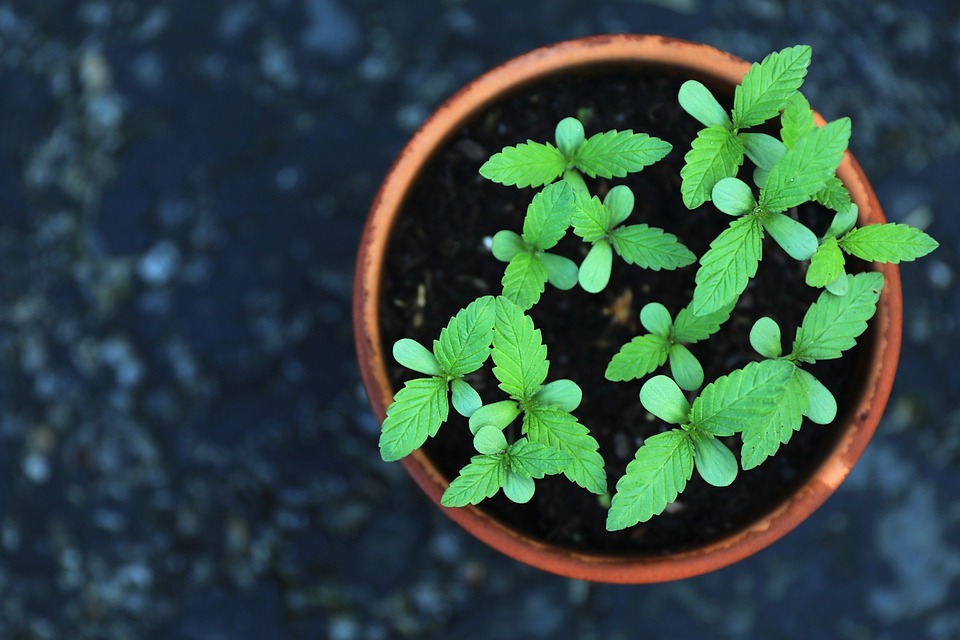We all know that smoking marijuana makes us feel high. It’s due to the presence of a psychoactive compound called THC (tetrahydrocannabinol). However, THC doesn’t stay in the body forever but can be detected for several days or weeks.

Alcohol completely disappears from the system after a few hours. But, cannabis stays longer than alcohol. However, the length of time the substance remains in your body depends on various factors-
- The amount of marijuana you have smoked
- Sensitivity to the drug test
- The type of strain smoked
- Your body fat
How is Marijuana Processed in The Body
To have a better understanding of how marijuana stays in the system, it’s necessary to learn how does it travel in the body. When you deliver cannabinoids such as THC into the body through vaping or smoking, they enter the bloodstream. After that, they are carried to the heart and then to different parts of the body. Then, cannabinoids bind to CB1 and CB2 receptors in the endocannabinoid system, thus regulating pain, sleep, appetite, mood, and various other functions.
Through the blood, THC reaches the liver and broken down into metabolites. Most drug screening methods check for the metabolite 11-nor-9-carboxy-THC or THC-COOH. This metabolite is stored in the fat, and eliminated through urine and feces. It’s an inactive metabolite and stays in the body longer than active THC. There are various detox drinks for eliminating THC metabolites available.
However, the process isn’t the same when cannabinoids are delivered in the form of edibles. When you ingest marijuana, THC reaches the bloodstream through the intestine and stomach walls. After that, it reaches the liver where its large portion is eliminated/metabolized. The remaining portion of THC is circulated to the body through the blood.
Factors That Influence How Marijuana Stays in The Body
Following are the major factors, which may impact the amount of time THC stays in your system:
Dosage
Marijuana drug tests look for THC, not other compounds. So, the amount of THC you take will directly reflect in the test results.
The higher the amount of THC consumed, the longer it will stay, so the longer it will take to break down and get eliminated from the body. The strength of the THC dosage also matters. Without laboratory equipment, it’s hard to determine the strength of THC.
Frequency of Use
How often do you smoke cannabis also influences how long THC stays in your system. Medical researchers have found that in chronic users, THC stays far longer than occasional users. Clearly, if you smoke marijuana daily, you are more likely to test positive in marijuana drug tests. Moreover, the frequency of marijuana use is also linked to developing withdrawal symptoms.
Body Fat
Another significant factor is the amount of fat in your body. THC-COOH binds to the fat molecules, thus can be stored for a long time. When fat is burned, THC is released from the body through urine or feces.
Consumers with higher body fat concentrations are more likely to metabolize cannabis slowly than those with less body fat. The best method to determine body fat is BMI (Body Mass Index).
Exercise
Exercising doesn’t change the rate your body metabolizes THC but doing this before a drug test may. A 2013 study analyzed the effects of 35 minutes of exercise on a stationary bike. Researchers concluded that THC concentrations increase by a significant amount, suggesting that if you exercise right before the drug test, it increases the chances of a positive result.
Scientists believe that exercising can lead to the release of THC from fat cells. Thus, people with higher BMI report a significant increase in THC levels.
Metabolism
If your body has a higher metabolic function, the rate of breaking down of cannabinoids will be faster, thus shortening the length of time THC stays in your system. As a result, the chances of your drug test to be negative would be more. So, how THC is metabolized in your body will influence the amount of time the cannabinoid remains in your body.
Genetics
Genetics is another important factor. For example, different people have different variants of cytochrome P450, which play an important role in breaking down cannabinoids and eliminating them from the body.
Eliminating Marijuana From The Body Faster
Usually, there are two methods to eliminate marijuana faster—increasing the metabolism rate and decreasing the THC concentration. How can you do that? By smoking low-THC strains.
With proper hydration, you can prevent positive drug results. On the other hand, if your body is dehydrated, this will increase the chances of a positive result.
However, there’s no way to increase your metabolism rate. Exercising may help. But, if you do exercises right before the test, it may cause a positive result.
Takeaway
So, you have learned how cannabinoids are processed in the body and the major factors that influence how long THC stays in your system. Well, you can’t predict the amount of time your body will take to eliminate cannabinoids properly. It varies from person to person. There’s a wide range of marijuana drug tests, but most of them check the presence of metabolite THC-COOH.
Usually, for everyone, marijuana is disappeared or be very low in concentration within a month. However, for infrequent users, cannabinoids may take 10 days or less to get eliminated from the body.
Talk to licensed medical marijuana doctors if you need any help regarding how THC is metabolized in your body.